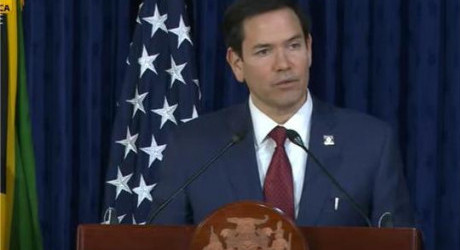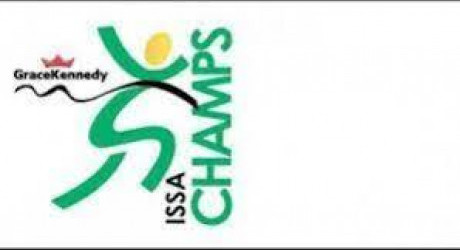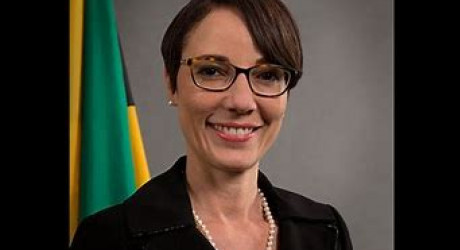.png)
00:00
00:00
00:00
Health Minister Dr. Christopher Tufton and Dr. Jaslin Salmon, former president of the Jamaica Red Cross
By Kimone Witter
Minister of Health and Wellness Dr. Christopher Tufton says discussions have started on the likely impact of the latest policy decision coming out of the United States that threatens to disrupt Cuba's overseas medical mission programme.
Dr. Tufton says he will also be taking the issue to the next meeting of the Cabinet.
On Tuesday, US Secretary of State Marco Rubio, a Cuban-American, announced the expansion of an existing Cuba-related visa restriction policy that targets forced labour linked to the Cuban labour export programme.
Mr. Rubio said this expanded policy applies to current or former Cuban government officials, and other individuals, including foreign government officials, who are believed to be responsible for, or involved in, the Cuban labour export programme, particularly Cuba's overseas medical missions.
The immediate family of these individuals will also face travel restrictions.
Speaking Friday on Radio Jamaica's Hotline, Dr. Tufton said there are close to 440 Cuban healthcare workers in Jamaica, primarily nurses.
"Right now what we're doing before commenting beyond this is to look at where they are, what the impact is, what the likely fallout would be if this became an option that had to be exercised based on the advisory, what the alternatives are. But a part of that is going to be to interpret what exactly this advisory means. I know there are some suggestions, but I'm working, my team and I closely, clearly with the Ministry of Foreign Affairs, Minister Johnson Smith, and Cabinet will have the way in on this also," he advised.
In the meantime, the Jamaican Government is being urged to take a regional approach to addressing the impact of the restrictions on the Cuban medical mission programme.
Former president of the Jamaica Red Cross, Dr. Jaslin Salmon, said the visa restrictions will have far reaching implications for Jamaica and the Caribbean, as there are thousands of Cuban healthcare workers in the region.
"And I think it's important that we recognise that anything that the Americans do in that regard is going to have serious consequences for Jamaicans, not just for the government, but Jamaicans in general. Because the healthcare programme that Cuba and Jamaica have worked together on is one that benefits poor people, people who cannot afford adequate health care for eye surgery and so on. And that without that, there will be thousands of people in Jamaica suffering already," he pointed out.
Dr. Salmon, who noted for instance that "nearly 7,000" people have already benefitted so far from the Jamaica-Cuba Eye Care Programme, said the Jamaican Government should seek to form alliances with regional governments in approaching the United States on the issue.
"We must take a regional approach, not only regional in terms of the Caribbean, but regional in terms of South America as well and Latin America.
That is, we must have a common understanding of how we're going to approach the problem," he proposed.
At the same time, he urged countries like Jamaica to become less reliant on other nations, warning that situations like these arise because of too much dependency.
"We've become dependent on other countries and we must begin to take care of ourselves. Once you put your eggs in one basket, when that basket falls, all your eggs are broken. And that's where we find ourselves."
Dr. Salmon was speaking Friday on the Morning Agenda on Power 106.
Soften stance?
Meanwhile, the Government of Guyana says it will be working through CARICOM to get the United States to soften its plans to sanction countries that benefit from Cuba's medical programme.
Addressing the issue at his weekly news conference on Thursday, Vice President Bharrat Jagdeo said the Cuban medical presence in the region has had some positive impact on health care delivery across the region.
He said at the CARICOM Heads of Government meeting held this month, an agreement was made to engage the Trump administration on several issues, as the leaders felt President Trump should see the region, not through the eyes of a third party, but directly get their views.
Mr. Jagdeo said US Secretary of State Marco Rubio has been in contact with several leaders in CARICOM, so it is anticipated that given the impact the visa restrictions will have on the region, it is one of the issues on which CARICOM's leaders will have to jointly approach and address the US government.
comments powered by Disqus

.jpg)






 All feeds
All feeds







